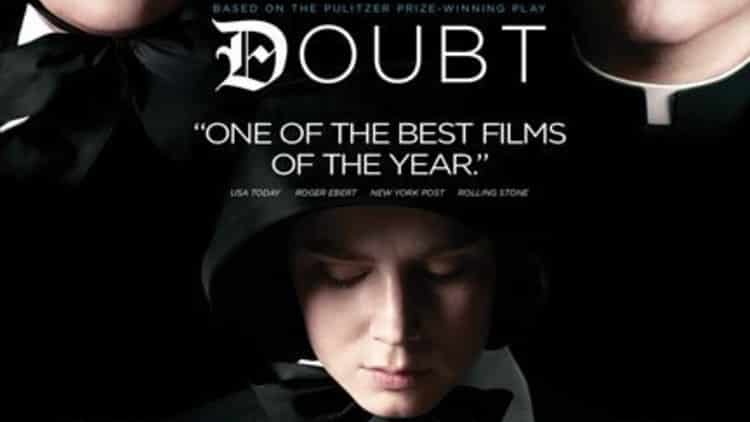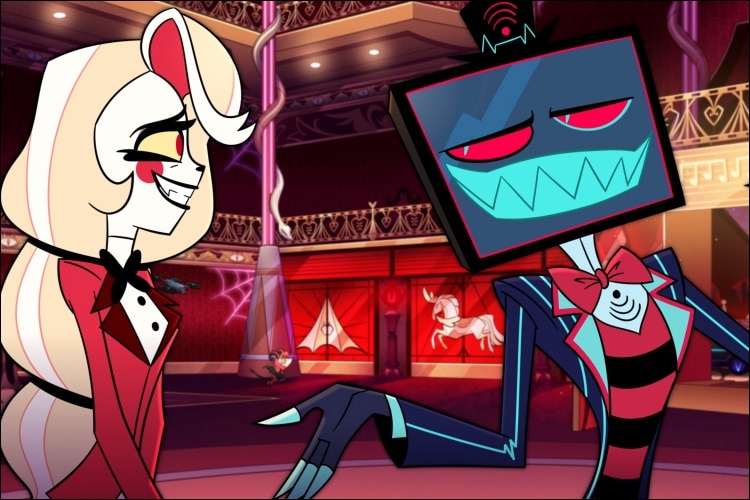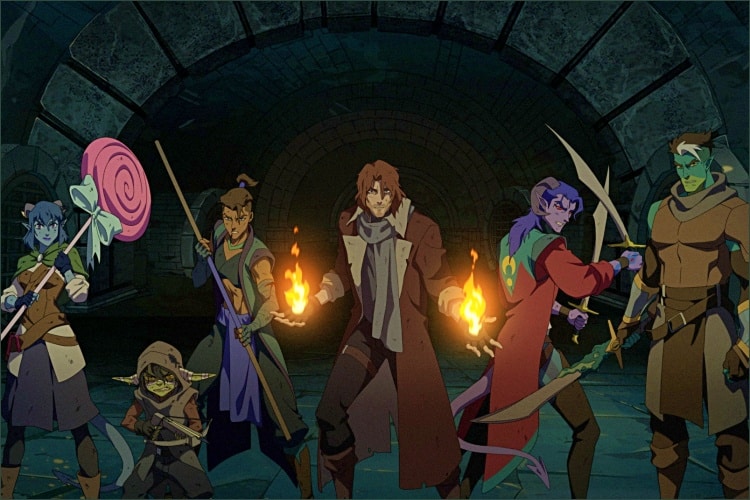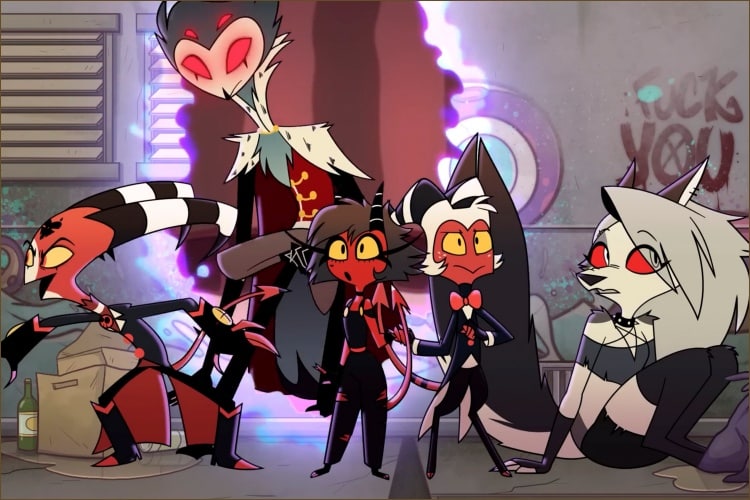I could never be a Roman Catholic priest. You’re probably thinking that the whole married, non-Catholic woman thing is the biggest pitfall, but no. It’s the public speaking. What a nightmare! And imagine if not only did one have to speak to an audience weekly (rapt and not-so-rapt) but that one must also avoid any missteps that might give an enemy pause. It’s a minefield. Never has that minefield yielded a more fascinating result than in the film Doubt. Written and directed for both stage and screen by John Patrick Shanley, this is a masterpiece of both storytelling and character complexity that probably started more discussions and debates than any movie of 2008.
Unlike my usual reviews, this will be split into two parts. The first three sections contain a full review for those who have not seen the movie, the final section is rambling for those who have. There will be no spoilers in the first sections and the final section will be well marked. Note that there may also be spoilers in the comment section. If you haven’t seen the film, please don’t read past the marked line – it’s an experience you deserve to have unspoiled. Once you’ve seen it please come back and tell me what you think.
The Plot
Father Flynn (Philip Seymour Hoffman) is a relatively new, relatively young priest at St. Nicholas parish and school in the Bronx. He’s amiable with parishioners and school children and would like to see the parish become a little more modern and open. His sermons are heartfelt and moving. The year is 1964 and his ideas – all of them – come under the scrutiny of Sister Aloysius (Meryl Streep), the senior nun in residence and principal of the school. She does not like this man. In fact, she thinks he is a serious and concrete detriment to her students – one young boy in particular – and her church and that he needs to go as soon as humanly possible. Perhaps she is right. Perhaps she is wrong. Where there are questions, there is Doubt.
The Analysis
Oh, what a brilliantly penned and acted screenplay. The subtle complexity of the characters is beyond beautiful – each is flawed and perfect and maybe a monster. The way the cast manages this complexity shows how much talent, skill and true artistry there is in great acting. Both Hoffman and Streep are at the top of their games. Hoffman at turns heartbreaking and creepy and Streep vacillating effortlessly from cold, heartless and scheming to frightened, insecure and protective to the tiniest bit vulnerable and caring. The interplay between the two actors makes for the most riveting scenes in the film. It’s like an intricate dance between two expert fencers, each standing to lose everything to the other. They are absolutely brilliant. Amy Adams also plays a pivotal if smaller and less developed role as a naïve and idealistic nun who teaches at the school. She is the fulcrum of the lever that is the other two characters. They both want to see themselves as she sees them, they both want her support. It’s as if by receiving her innocent endorsement they can each feel that they have been vindicated on some personal level. She is vacuous, but that is intentional. My fear is that Adams will end up pigeonholed in this type of role (which she has played before in Junebug and Enchanted) and not be allowed to display the talent I suspect is under the surface. Kudos also to Viola Davis for a stunning performance in the very small role of the mother of the young boy in question.
The set design manages to convey both the proper period as well as a timelessness that keeps the messages fresh and allows us to contemplate the drama within a more modern framework as well as that in which it is presented. It’s clearly not current, but the period details never overwhelm the basic human struggles.
The Verdict
Doubt is a brilliantly conceived and masterfully realized film. The intricacies are so delicately balanced that any misstep from the cast would send the entire house of cards tumbling. Rest assured that this cast makes no such errors, enhancing what is on the page with awe-inspiring talent and skill. But make no mistake, this is heavy drama. Themes including pedophilia are not for anyone looking for a light and airy way to pass the time. I suspect that the film will also be very difficult for viewers with bad experiences with the Catholic Church or priesthood in their pasts. As a study in character, acting and screenwriting, it’s brilliant and riveting. But keep in mind your own personal preferences and perhaps demons when considering Doubt. I recommend it very, very highly.
*************************************
The Ramble – Beware, for herein lie SPOILERS! (stop reading now if you plan to see the film)
Okay. So either you’ve seen the film or have no intentions of ever doing so and just want to read my rambling (hey, there might be one or two of you out there – let me have my delusions!). As you well know, Doubt absolutely refuses to tie anything up with a nice bow and leaves every person who views it with the task of deciding if Father Flynn is misunderstood or is a monster. As well as if Sister Aloysius sees pedophiles everywhere or really does have a true sense of this man. Not forgetting, of course, that perhaps her fear of change that is personified in Flynn might just be helping her make judgments that suit her purposes. So remarkably balanced, the film moves us back and forth for two hours. I found myself absolutely sure Father Flynn was innocent one minute only to have that certainty 100% reversed the next by something as simple as an angry glance or a lecture on clean fingernails. By the end of the film, I was simply unable to accept an easy answer. I couldn’t look at all that had passed between these characters and see the situation as simple black or white.
What I’ve been finding fascinating is the reactions of people I know. One friend was certain without question that Flynn did indeed molest the boy. He grew up in the Catholic Church and had been “approached” on more than one occasion by a priest not looking for an altar boy. Another also grew up in the Catholic Church but without any such experience. He went back and forth but finally decided that yes, Flynn was guilty. Does experience within this church predispose one to find the priest guilty? Or does our current world, where abuse by priests in times past has become a horrible scar on the entire institution, colored our perception of the individual? Or, maybe we’re making it all too simple.
The pivotal scene, for me, was the one between Sister Aloysius and the suspected victim’s mother. Revealing that her child was gay changed the entire dynamic for me as a viewer and opened another world of possibilities as to the truth of the situation. What I, as a non-Catholic adult woman with no history with this institution beyond newspaper headlines, came down to is that I do not think Father Flynn was guilty as charged by Sister Aloysius. He always denied touching the child. His fumbling assertions that he was unable to say some things – the scene that made him look so very guilty – contained no admission of guilt of the crime of which he had been accused. Only of having sinned, confessed and been forgiven of something which he did not divulge.
Looking at his behavior and his clearly haunted conscience, it seems odd that he would continue to obviously comfort and favor this boy in public while being literally hunted down. Yet what if he was indeed doing what he beseeched others to do – not losing his compassion? I believe (and this is only the theory of one person – me) that the sin of which Father Flynn found himself guilty was that of homosexuality – he felt for and related to this boy on a level he couldn’t explain to anyone else. In his rigid and rule-bound world, this could have been a bigger sin than that of which he was actually accused. To him, the church and the 1964 world it would have been a sin to his core, a flaw that he could never fix or really be forgiven. It was the root of his doubt, the doubt in his sermon that gave Sister Aloysius her first weapon against him. He was wracked with a guilt that he could not shed, hounded by a woman driven to destroy him. His resignation was not an admission of molesting a child, it was an admission of defeat – she would never leave him with his demons and he could never reveal them. If he had molested the child, he probably could have confessed, been forgiven and gone on as before. It was 1964, times were different. Indeed, that was his fate – moved to another parish and essentially promoted. But had he confessed to the sister to being homosexual, he would have lost everything – his world would have been destroyed and he would have been removed from the priesthood. Sister Aloysius was right about one thing – when she saw that child pull away from him on the playground there was perhaps a real reason. Both she and that boy felt a difference in Father Flynn. Whether that difference was that he was progressive and far more modern than other priests or that he was more involved than others in their experience or that they really did somehow sense that he was gay – they didn’t like him. He was “wrong” to them. He was “wrong” to himself. He acted guilty because he spent his life feeling guilty. That he had connected with a child who had perhaps confided his own sexual orientation made him extremely vulnerable. That he could not ignore that child made him even more so. Yet how could he turn his back? A child who wanted to be a priest, who was violently persecuted not only for the color of his skin, but by his own father for his sexual orientation – allowing this child to perish would have been like allowing his own young self to perish.
In the end (yes, I’ll shut up eventually) what fascinates me more than anything else is not my own theory, but the incredible variety of reactions and the reasons for them. I don’t know if I’ve ever seen a film with an open ending that engendered so many different conclusions, many of them held with just as much certainty as Sister Aloysius proclaimed in her promise to bring down Father Flynn. Doubt is a film that will stay with me. I wonder what Shanley really wanted from us as an audience and if he knows if his own character is guilty of the crime of which he was accused. Maybe he has as much doubt as anyone else. This is truly a monumental achievement in storytelling. I didn’t go into it with the highest of expectations and was rewarded with a movie experience that goes far beyond any of recent recollection. I would love to know other people’s theories on Father Flynn and Sister Aloysius – please feel free to leave them in the comment section.

Sue reads a lot, writes a lot, edits a lot, and loves a good craft. She was deemed “too picky” to proofread her children’s school papers and wears this as a badge of honor. She is also proud of her aggressively average knitting skills. TV and indie movies are her jam.





Leave a Reply